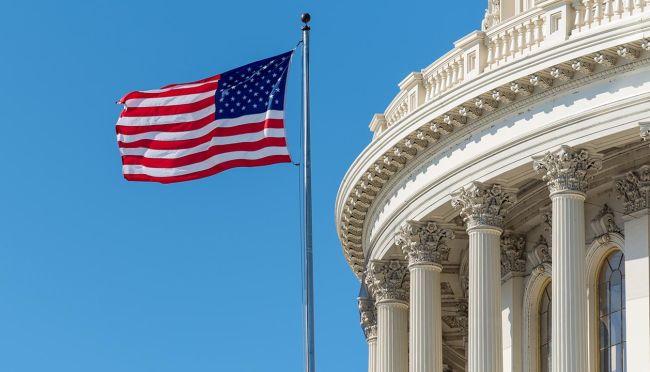Policy →
→

- 09 Jan 2024
- Research & Ideas
Could Clean Hydrogen Become Affordable at Scale by 2030?
The cost to produce hydrogen could approach the $1-per-kilogram target set by US regulators by 2030, helping this cleaner energy source compete with fossil fuels, says research by Gunther Glenk and colleagues. But planned global investments in hydrogen production would need to come to fruition to reach full potential.

- 21 Apr 2023
- Research & Ideas
The $15 Billion Question: Have Loot Boxes Turned Video Gaming into Gambling?
Critics say loot boxes—major revenue streams for video game companies—entice young players to overspend. Can regulators protect consumers without dampening the thrill of the game? Research by Tomomichi Amano and colleague.

- 31 Mar 2023
- Research & Ideas
Can a ‘Basic Bundle’ of Health Insurance Cure Coverage Gaps and Spur Innovation?
One in 10 people in America lack health insurance, resulting in $40 billion of care that goes unpaid each year. Amitabh Chandra and colleagues say ensuring basic coverage for all residents, as other wealthy nations do, could address the most acute needs and unlock efficiency.

- 14 Feb 2023
- HBS Case
Is Sweden Still 'Sweden'? A Liberal Utopia Grapples with an Identity Crisis
Changing political views and economic forces have threatened Sweden's image of liberal stability. Is it the end of the Scandinavian business-welfare model as we know it? In a case study, Debora Spar examines recent shifts in Sweden and what they mean for the country's future.

- 06 Sep 2022
- Research & Ideas
Curbing an Unlikely Culprit of Rising Drug Prices: Pharmaceutical Donations
Policymakers of every leaning have vowed to rein in prescription drug costs, with little success. But research by Leemore Dafny shows how closing a loophole on drugmaker donations could eliminate one driver of rising expenses.

- 01 Sep 2022
- What Do You Think?
Is It Time to Consider Lifting Tariffs on Chinese Imports?
Many of the tariffs levied by the Trump administration on Chinese goods remain in place. James Heskett weighs whether the US should prioritize renegotiating trade agreements with China, and what it would take to move on from the trade war. Open for comment; 0 Comments.

- 24 Mar 2022
- Research & Ideas
Why Cutting Jobless Aid Isn't the Answer to Worker Shortages
Many policymakers thought that halting COVID-related unemployment insurance would be a "silver bullet" to addressing worker shortages. In reality, cutting aid undermined consumer spending, says research by Raymond Kluender. Open for comment; 0 Comments.

- 02 Jun 2021
- Research & Ideas
A Rare Find in Health Care: A Simple Solution to Racial Inequity
Research by Amitabh Chandra offers a stark new explanation for racial disparities in heart attack survival rates—a problem with immediate answers. Open for comment; 0 Comments.

- 19 Jan 2021
- In Practice
Leadership Advice for Biden: Restore a Sense of Calm
Harvard Business School faculty members share their expectations for a Biden presidency and offer advice to the commander in chief as he takes on the raging COVID-19 pandemic and a divided nation. Open for comment; 0 Comments.
- 23 Jul 2020
- Research & Ideas
How Countries Use Financial Policy to Fight COVID-19
Developing countries have fewer fiscal tools and policy options to combat COVID-19 damage to their economies, according to research by Alberto Cavallo and colleagues. Open for comment; 0 Comments.

- 20 Jul 2020
- Op-Ed
It's Time for a Bipartisan Health Plan for Employers and Employees
Regina E. Herzlinger and Richard J. Boxer prescribe a seemingly impossible cure for battling health care options: a plan that embraces both Republican and Democratic ideas. Open for comment; 0 Comments.

- 12 Jul 2020
- Working Paper Summaries
Sticky Capital Controls
One of the legacies of the 2007–2008 global financial crisis has been a reassessment of the potential for restriction of capital flows policies. This paper documents a set of stylized facts on capital controls along their intensive and extensive margins for emerging markets and document them to be “sticky.” We then rationalize them through a model that includes fixed cost of implementing such policies, which lower the welfare gains of implementation.

- 10 Jul 2020
- Working Paper Summaries
Making Economics More Useful: How Technological Eclecticism Could Help
This paper shows how tools, such as simulations used to design new technologies, can facilitate collaborative economic policy judgments. The paper forms part of a broader, ongoing study of knowledge in practical fields such as engineering, medicine, and business.

- 01 Jul 2020
- Working Paper Summaries
Social Interactions in Pandemics: Fear, Altruism, and Reciprocity
An analysis of 89 cities worldwide shows that mobility responds to infection risk, altruism, and reciprocity. Correcting the SIR model to account for this behavior shows that a balanced approach involving stringency measures, in respect of human dignity, and responsible social preferences mitigates the pandemic health and economic costs.

- 16 Jun 2020
- Working Paper Summaries
Government Incentives for Entrepreneurship
Even though many public policy efforts on entrepreneurship are well intentioned, the success rate has been disappointing. This essay explores these policies, focusing on financial incentives to entrepreneurs and the intermediaries who fund them.

- 01 Jun 2020
- Working Paper Summaries
Rebates in the Pharmaceutical Industry: Evidence from Medicines Sold in Retail Pharmacies in the U.S.
Retail pharmacy data illustrates it can be misleading to use list prices instead of net prices to understand pharmaceutical prices. Analysts and economists working in public policy should be extremely cautious in drawing policy conclusions based on list prices alone.

- 08 Jun 2019
- Working Paper Summaries
The Gift of Global Talent: Innovation Policy and the Economy
High-skilled workers in today’s knowledge-based economy are arguably the most important resource to the success of businesses, regions, and industries. This chapter pulls from Kerr’s book The Gift of Global Talent to examine the migration dynamics of high-skilled individuals. He argues that improving our knowledge of high-skilled migration can lead to better policy decisions.

- 22 May 2019
- Research & Ideas
Forgiving Student Loan Debt Leads to Better Jobs, Stronger Consumers
Without the burden of student loan debt, people seek higher-paying careers, stabilize their finances, and contribute to the economy, says Marco Di Maggio. Open for comment; 0 Comments.

- 06 Jun 2018
- Working Paper Summaries
Complex Disclosure
This study shows that companies looking to hide unfavorable information might strategically be making contract terms unnecessarily complex, harming consumers and undermining the effectiveness of disclosure. These results highlight a role for regulation that would encourage simpler forms of disclosure.

When It Comes to Climate Regulation, Energy Companies Take a More Nuanced View
Many assume that major oil and gas companies adamantly oppose climate-friendly regulation, but that's not true. A study of 30 years of corporate advocacy by Jonas Meckling finds that energy companies have backed clean-energy efforts when it aligns with their business interests.